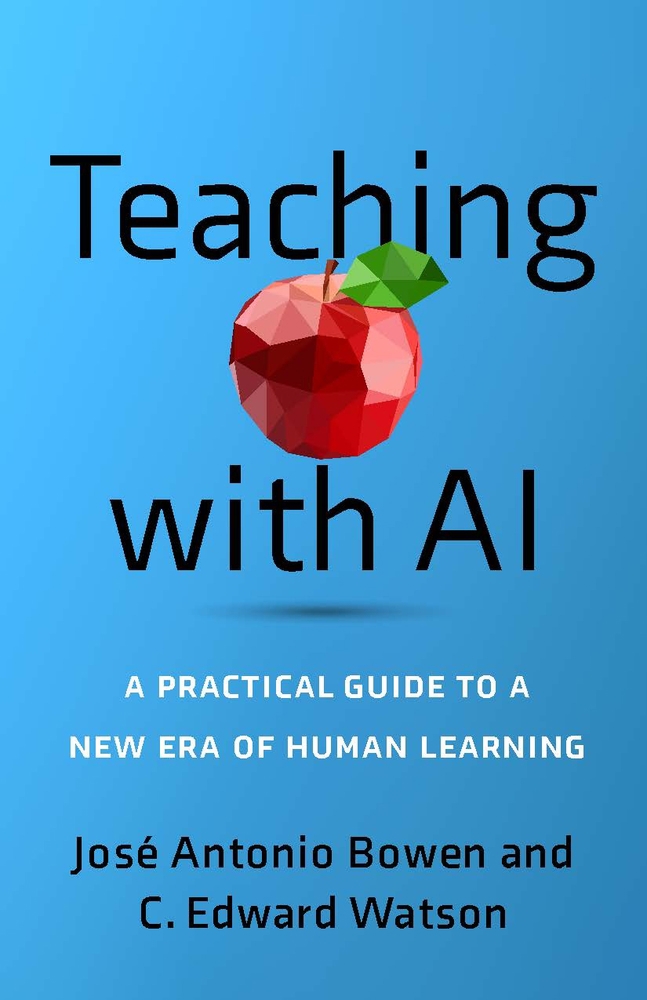
We are in exciting days with opportunities to harness and train artificial intelligence to be a great resource in a number of areas…but especially in education. Now more than ever, we have tools at our fingertips to help teachers differentiate curriculum to meet the needs of their students in effective and creative ways. I enjoyed reading Teaching with AI as a reminder of the need for foundational skills BEFORE AI can really be of assistance. Too many students want to skip that step and are cheating themselves of the value of the formative years. I highlighted several things and posted those notes below…
- If the internet changed our relationship with knowledge, AI is going to change our relationship with thinking. p. 2
- Previous AI helped curate your world, but GPT AI will allow you to create your world. p. 26
- AI will eliminate some jobs, but it is going to change every job: those who can work with AI will replace those who can’t. p. 28
- Creativity relies on the quantity of different and divergent ideas. Variations of single ideas are initially less valuable. Both humans and AIs generate new ideas by trying new combinations, but AI can do this at a significantly greater speed and quantity. AI is equally happy proposing ten, a hundred, or a hundred thousand new ideas, titles, or products. p. 63
- Teaching students to recognize good writing and to edit AI-produced drafts is going to be harder if students do not first practice writing without AI. p. 84
- Pedagogy is about improving the odds that students will learn. p. 130
- Before we pay attention to the details of any policy, we first need to understand why it matters to us. p. 135
- AI work should not be able to pass your course, but our new grading system will need to make this clear and encourage even better AI-assisted work. Your standards can and should be higher than ever. p. 154
- As students advance, they will also need to determine how to balance different feedback or even when to reject feedback. p. 164
- Learning to recognize good work normally starts with doing poor work and then gradually improving. If AI makes the entry-level tasks easier, how will students learn the basics. It is hard to learn to recognize high quality without deep understanding learned by doing. At the same time, immediate, specific, and customized feedback from AI has the potential to make our classes more inclusive and help our students become more self regulated and autonomous learners. p. 182


